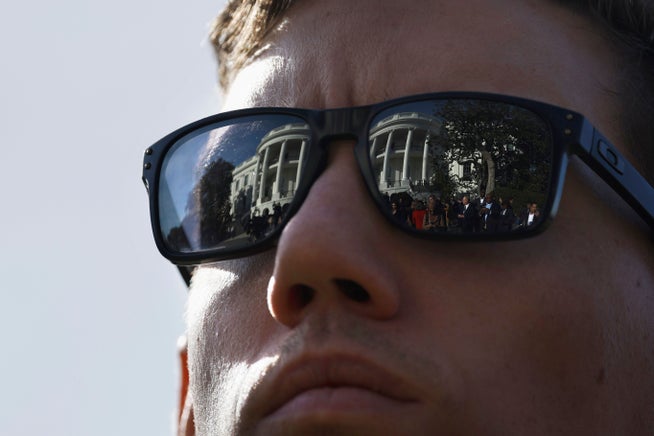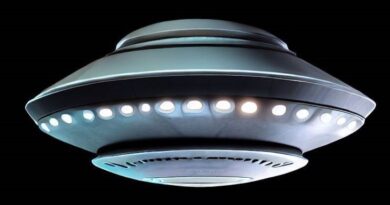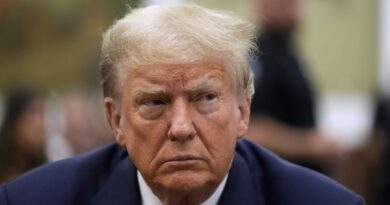Is Donald Trump’s «deep state» a myth?
Donald Trump says he must destroy the deep state before it destroys America. Political scientists say this is a dramatic election soundbite, but argue that the U.S. does not have a deep state – yet.
 –> <!–>
–> <!–>A Secret Service employee in front of the White House in Washington.
–>
After the foiled Sept. 16. attack on Donald Trump in West Palm Beach, conspiracy theorist Alex Jones took to X, the platform formerly known as Twitter, with a startling claim: «A trained CIA killer just tried to kill Trump in Florida,» he wrote. There was no doubt that the «deep state» was behind the attempt, Jones said. After the first assassination attempt in Pennsylvania in July, Jones also posted on X: «The deep state tried to kill Trump.»
Jones is the founder of media platform InfoWars, a platform that regularly features conspiracy theories. He was sentenced to pay $1.5 billion in damages for spreading his infamous lie that the 2012 massacre at Sandy Hook Elementary School in Connecticut was staged. Nevertheless, millions of Americans listen to Jones’ InfoWars radio show and read his website. And he is one of Trump’s key supporters.
Breaking: Trumps attempted assassin in Florida is a US fighter who served in the Ukrainian foreign Legion. The CIA runs and controls the US foreign Legion in Ukraine. Translation: a trained CIA killer just tried to kill Trump in Florida. This is all about preparing the ground for… https://t.co/vFX1gsiwaI
— Alex Jones (@RealAlexJones) September 15, 2024
Trump’s appearance on InfoWars as a presidential candidate in 2016 helped make the show famous. Thanks to Trump, Jones rose in popularity, and Trump in turn became a hero to conspiracy theorists. The alliance between the two continues to this day. After the failed assassination attempt in Pennsylvania, Jones wrote to his well over 2 million followers on X that he had «been telling Trump since then he needs to come out and say what everyone else already knows. It is obvious that they tried to get him killed.»
🚨BREAKING: Trump Blames Biden Harris Administration For Assassination Attempt pic.twitter.com/lsmUPqKqRA
— Alex Jones (@RealAlexJones) August 29, 2024
Under Trump’s aegis, conspiracy theories have become vital pillars of the Republican Party. In these, Trump is the main character, the great victim of a dark conspiracy. Since being voted out of office, the former president has claimed that he was the true winner of the 2020 election, that he has been unfairly targeted by lawsuits – because he is innocent, of course – and that people are now even trying to kill him.
When he references the «deep state,» Jones is talking about hidden forces in the government that oppose America’s interests, and now want to bring down Trump. For his part, Trump is only too happy to see himself as a fighter against dark forces – as a patriot predestined for greatness, and even as a chosen one sent by God, who this deep state intends to use all its power to stop.
Americans distrust the state
Over 40% of Americans believe in the existence of a deep state, according to surveys. Among Republican voters, this proportion rises to as high as 60%.
Such figures come as no surprise to Francis Fukuyama, the respected Stanford University political scientist. One of the most essential aspects of American political culture is distrust of the state, which is seen as intervening far too much in the lives of every single U.S. citizen, he says. «Americans see themselves having a constitutional system that protects them from the state. Whereas in Europe, I think most people think of the state as something that protects them from external enemies, from corporations, from market forces and so forth.»
For someone like Trump, Fukuyama says, it is thus easy to criticize the existing federal bureaucracy as being a «deep state,» with all this term’s negative connotations.
Trump’s efforts to make the fight against the deep state to an issue in the election campaign therefore come as little surprise. He recently unveiled his «plan to dismantle the deep state» in a 10-point video explanation that focuses primarily on cleaning up the federal administration. He says he wants to get rid of «corrupt actors» in the national security and intelligence apparatus, he says, and promises to overhaul departments and federal agencies pursuing ends at odds with his administration, including the Bureau of Land Management.
But is there really anything to this idea of a deep state? Are Americans really in danger from coordinated forces in the government that want to harm Trump?
The term «deep state» was introduced by historians in the early 1990s to describe countries such as Turkey and Egypt, which already in the 1920s had security apparatuses and militaries that pulled the political strings in the background. Without their approval, no state policy could be implemented.
Although the term is now widely used, Fukuyama does not believe that it is accurate to say that the United States has a deep state of this kind. Of course, he says, the Federal Bureau of Investigation, the country’s domestic intelligence service, has engaged in questionable procedures, and the CIA has engaged in secret activities abroad, including numerous successful governmental overthrows and assassinations of presidents who opposed U.S. interests.
Fukuyama also notes that the large-scale surveillance of American citizens conducted by the National Security Agency, the country’s signals-intelligence service, was also an unacceptable outgrowth of the state apparatus. Nevertheless, he adds, «when these abuses were revealed, they held hearings, they changed the law so that this couldn’t happen again. They prosecuted officials that had been abusing their power. And that’s actually I think, the way a properly established constitutional government operates.»
The American system has numerous control processes or «checks and balances,» including Congress’ investigative committees, Fukuyama says. In the mid-1970s, in the wake of the Watergate investigations, the activities of the intelligence services came to be monitored more closely, and presidents’ scope for independent action was curtailed. In the decades that followed, U.S. presidents, attorneys general and the heads of the intelligence services accepted this legal framework, including restrictions on the powers of the FBI, CIA and NSA.
<!–>
Growing presidential power
And yet even in the 1980s, there were already influential figures who saw things quite differently. One example was Bill Barr, who later served as attorney general under George H.W. Bush, and was later appointed to this position again under Trump. Barr argued that the Watergate reforms had gone too far, and that special investigators had become too powerful. He believes that presidents should be able to do what they want. If voters disapprove of some of these actions, they should vote the president out of office, Barr said – after four years.
This attitude, held by many conservatives, has now been confirmed by a recent decision by the U.S. Supreme Court, which ruled that Trump could not be criminal prosecuted for official acts he carried out while president. The Supreme Court decision also states that no presidential conversations may be used as part of a criminal investigation.
Author and Pulitzer Prize winner David S. Rohde, who has written two books on the deep state, told the NZZ that in the wake of the court’s decision, «the president can call up the Attorney General and talk to them about breaking into the Democratic national headquarters like in Watergate. And that conversation is off limits. So it’s a huge moment and a big change in the country.»
This means legal freedom of action for presidents, who can do whatever they like without the risk of being prosecuted. According to the two analysts, Fukuyama and Rohde, Trump is thus likely to try to fight a supposed deep state with a real deep state.
Rohde ended his 2021 book «In Deep» about Trump and his time in the White House with the following ominous lines: «He tried to create a government filled solely with loyalists, without transparency, democratic norms, or public processes – a deep state of his own.»
Trump did not succeed in accomplishing this during his first term in office. The Republican even failed to deliver on the promise that was the subject of repeated chants during his 2016 election campaign: to «drain the swamp,» meaning the bureaucracy in Washington. If anything, this continued to grow during his time in office, as Trump filled many positions with lobbyists.
In this year’s election campaign, the former president is again seeking to exploit Americans’ skepticism toward the distant center of power in Washington. He describes his Make America Great Again movement as resistance to this deep state, which he says interferes too much in citizens’ affairs. Almost apocalyptically, he warns: «Either the deep state destroys America, or we destroy the deep state.»
This strategy worked for him in 2016.
–>
Latest articles
Global reporting. Swiss-quality journalism.
In today’s increasingly polarized media market, the Switzerland-based NZZ offers a critical and fact-based outside view. We are not in the breaking-news business. We offer thoughtful, well-researched stories and analyses that go behind the headlines to explain relevant events in the U.S., in Europe and worldwide. To produce this work, the NZZ maintains an industry-leading network of expert reporters around the globe who work closely with our main newsroom in Zurich.
Sign up for our free newsletter or follow us on Twitter, Facebook or WhatsApp.


